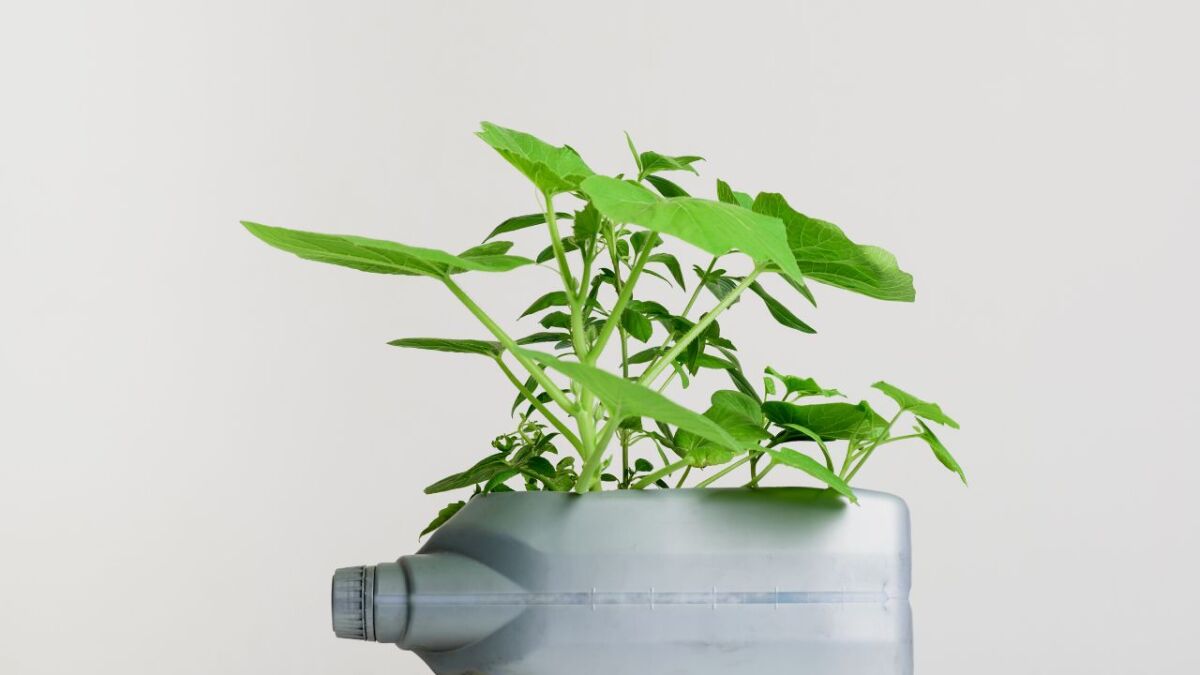
The ultimate recycling guide for preppers
👉 The key facts from this guide
- Recycling helps you to reduce your waste and at the same time produce useful things.
- Glass and paper are excellent materials for recycling and can be useful in different situations.
- Keep your containers clean and dry to maintain the quality of your recyclable materials.
- Sort your waste and find out which materials can be recycled.
- Motor oil can be recycled, and paper can be used as fuel or for thermal insulation.
- Composting is an effective method to recycle organic waste and at the same time obtain a useful fertilizer for your garden.
In recent years, topics such as environmental protection, waste disposal and recycling have become increasingly important.
This is hardly surprising when you look at current developments: we produce and consume more and more waste, whether it be glass, paper, plastic, residual or organic waste.
Of course, this fact has not gone unnoticed in the prepping community either.
Especially when it comes to surviving in the wilderness or when SHTF, waste disposal often plays an essential role.
If you can recycle your waste as best you can, you can significantly increase your chances of survival.
On the one hand, you can reuse certain materials, whether in the same or a different condition, and on the other hand, you protect yourself from diseases and infections.
Because, especially in a crisis, the sanitation situation may not be optimal. You can't use it if germs and pests accumulate in your rubbish heap.
So that you don't get too confused by all the information floating around on the internet, this article gives you valuable tips and tricks to get you fit for recycling as a prepper.
Have fun with the ultimate recycling guide for preppers.
Waste consumption and its consequences when SHTF
Realistically, when things really start to heat up, you won't be thinking much about your waste consumption, let alone recycling.
This is more than understandable, after all, your priority is to ensure the safety of your family and to ensure that there are enough supplies available and usable for all of you (you can find my emergency preparedness list here).
However, keep in mind that an SHTF situation has hardly anything in common with ordinary everyday processes. Do you really believe that the garbage collection will continue to drive their routes regularly to relieve you of the different types of accumulated garbage?
Believe me, these people will be constantly occupied with securing their survival. On the other hand, you will continue to produce garbage, and quite a lot of it.
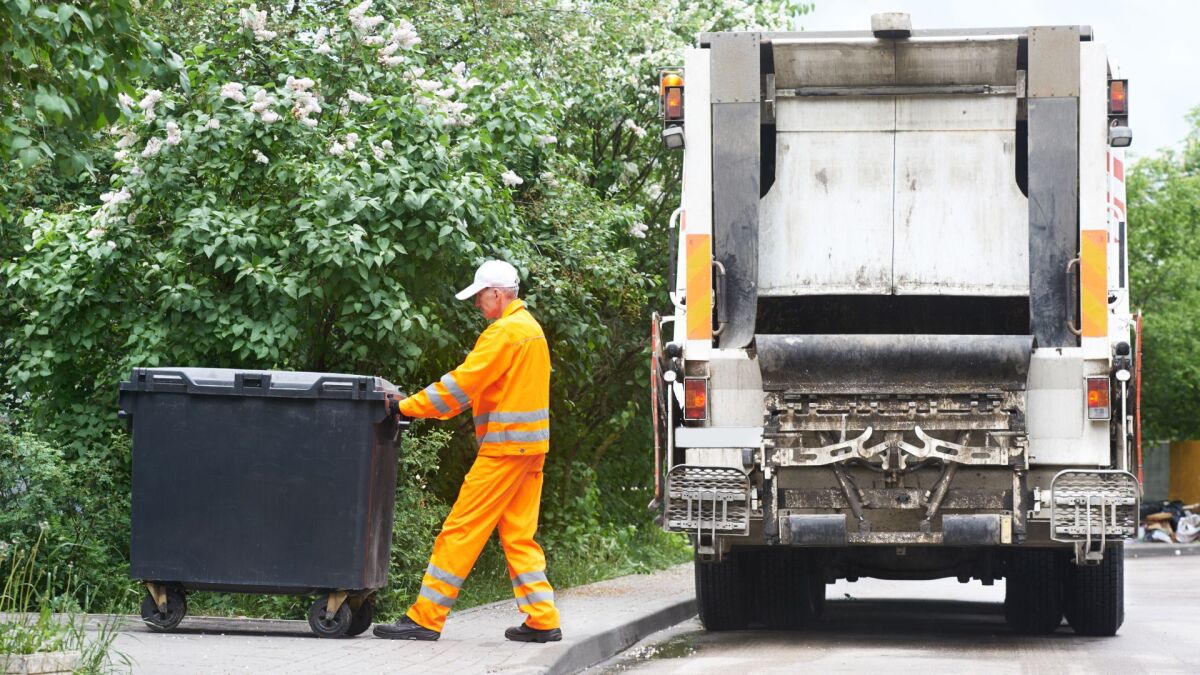
According to a study, every German produced about 476 kg of household waste alone in 2020, which can be read here: Household waste per person in Germany up to 2020 | Statista.
This is equivalent to about 1.3 kg per day that an adult in Germany produces as garbage.
If you, for example, live in a four-person family, the amount of waste will of course increase, to about 5.2 kg per day. So, in 30 days, your family, and you will accumulate a whopping 156 kg of household waste, which unfortunately can no longer be collected and properly disposed of by the local garbage collection.
The question then arises as to where you will collect 156 kg of household waste per month without consuming immense amounts of space, living in overwhelming odors and possibly risking groundwater pollution and infections.
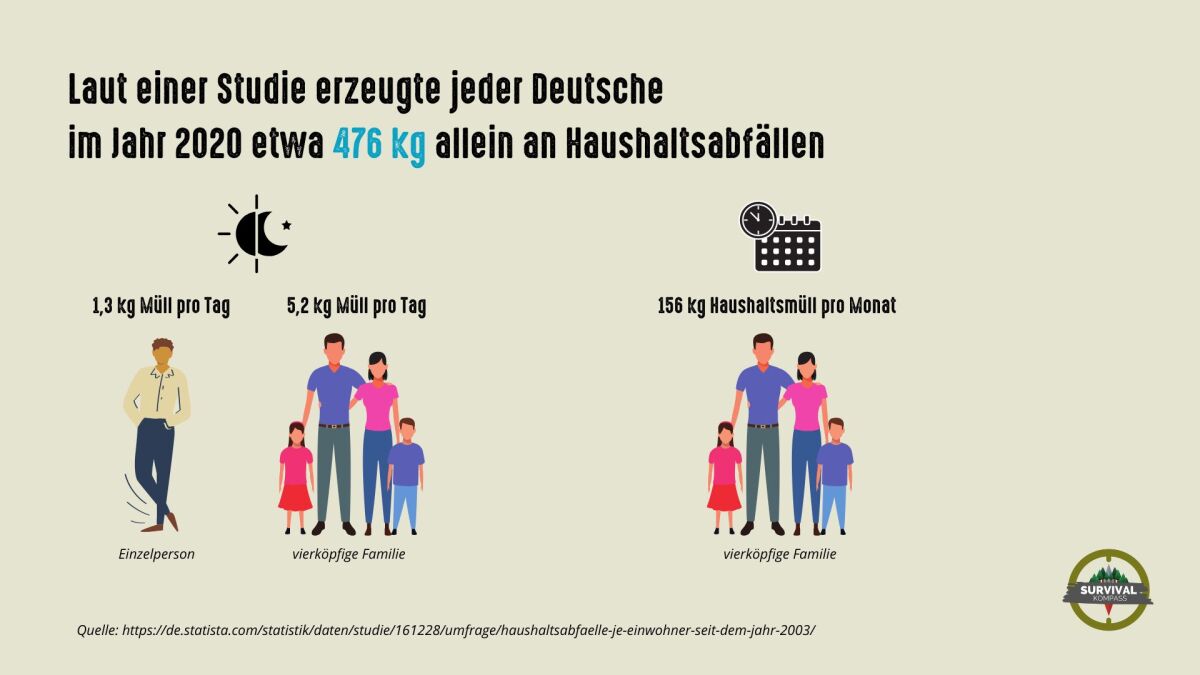
Furthermore, please keep in mind that your household is not the only one producing such amounts of garbage!
So, what can you do to optimize your waste management in crisis and minimize the negative effects as much as possible?
Quite simply: you start by recycling your trash!
You will learn how to do this in the next sections.
What is recycling exactly?
Basically, recycling means using waste to create a new product. The raw materials of an object are used to create an entirely different object that may have nothing in common with its original state.
Through recycling, you reduce the amount of waste generated by your consumption and at the same time conserve the natural resources of your environment.
Because if you can use the raw materials of previously used products, you no longer have to rely on the aforementioned natural resources to obtain them.
In plain language, through recycling you increase your self-sufficiency, that is, the ability to "economically" provide for yourself and create new goods that can be useful to you.
Furthermore, you conserve your environment and preserve its durability and usability, so that in case of emergency, you can still rely on well-preserved and clean natural resources.
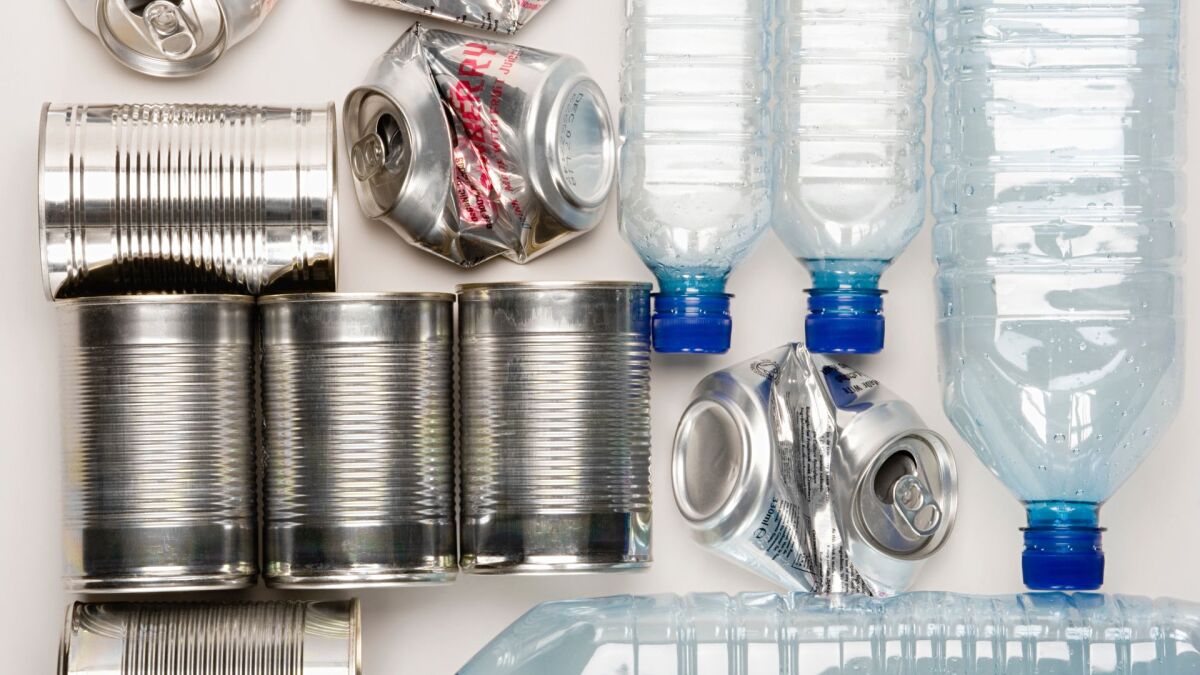
The history and development of recycling
Of course, this article would not recommend recycling to you if there were not already several decades, centuries, or even millennia of well-founded practical knowledge available.
The recycling of waste is not a modern phenomenon, but has existed since much earlier times.
In fact, recycling played a significant role in ancient Greek society. Glass and various metals were collected, melted down, and repurposed. Special collectors were responsible for this, traveling from street to street and household to household to gather old but usable metal.

For example, a sharp knife could be made from a reusable drinking vessel made of volcanic glass, which could also cut tough and resilient meat like butter.
From ancient times until the Middle Ages, it was standard practice to reuse old but still usable materials for various purposes.
According to records, paper was already being recycled in 1031. Due to a shortage of materials, all available paper that was no longer needed was collected and recycled.
With the onset of the industrial revolution, recyclable materials became increasingly important, and this trend has continued to modern times.
Schweppes, the well-known beverage brand, launched its first unofficial recycling program in 1800, similar to today's bottle deposit system. Customers were rewarded for returning crates, allowing the company to recycle old bottles and save on material costs.
If you are interested in Schweppes' recycling history, and you are proficient in English, take a look at this link.
The Beginning of Modern Recycling
The start of modern recycling occurred in the 1970s. Energy costs were rising rapidly, and it became increasingly expensive to produce certain materials, such as aluminum. Over time, it was discovered that the costs of recycling items were greatly lower than using raw materials.
For example, the energy use required for recycling aluminum is only about 5% of the amount that would be required for using its raw material - bauxite. The buzz around recycling spread like wildfire, causing more companies to jump on the "newly discovered" train and leading to the development of numerous ideas for reusing waste materials.
The typical recycling logo, with three green arrows that you are probably familiar with, was also developed during this time period.
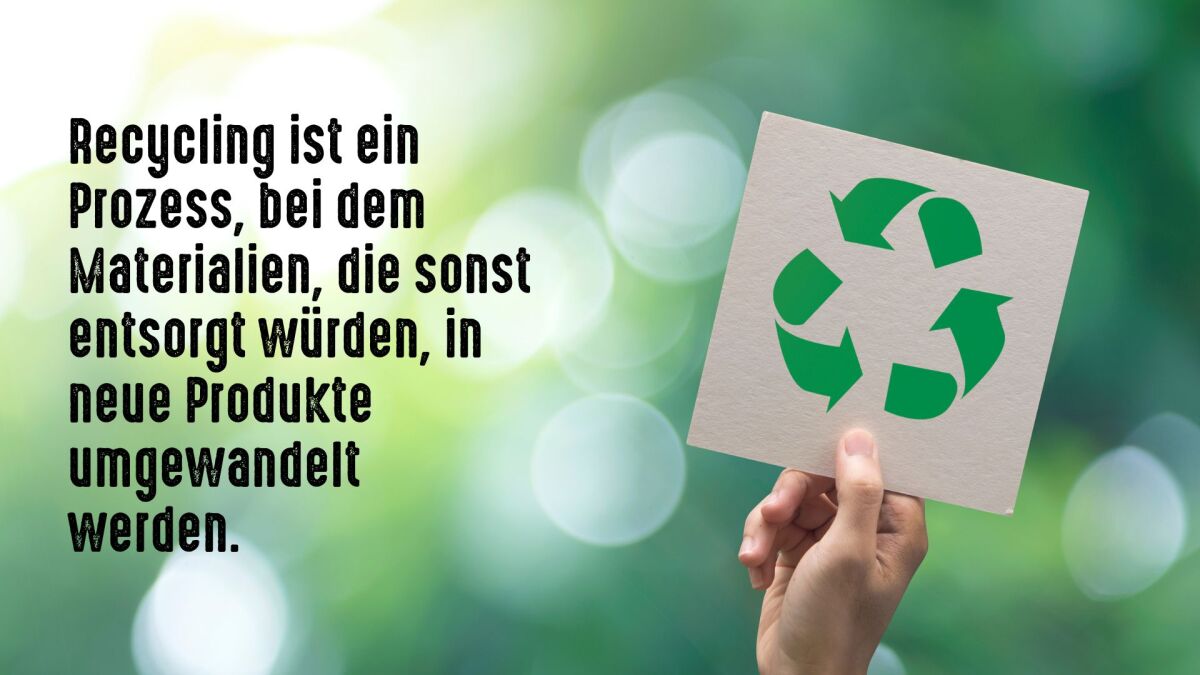
What Are the Benefits of Recycling Waste Materials?
But enough about the historical aspect because you probably want to know what benefits recycling can bring and how you can implement it.
As you could see in the previous sections, humankind has recognized the benefits of recycling for millennia:
- Reducing overall waste production
- Avoiding pollution caused by overflowing landfill sites
- Saving energy and costs
- Preserving and promoting the longevity and usability of finite resources
For you as a prepper, recycling should even have a higher priority, especially in an SHTF scenario. Through recycling, you gain the following advantages:
- You do not use up valuable space with disproportionately large makeshift garbage collection sites (remember, a family of four produces 156 kg of household waste per month).
- You can create certain tools from items that are no longer needed.
- You can use organic waste as fertilizer, among other things.
- You can keep your household clean and as free from infections as possible, without external help in the sanitation area.
- You develop an eye for what you can reuse in what way, and generally live less wastefully, which will benefit you.
So, you see that recycling should not be an optional extra that might help you here and there, but should absolutely be among the highest priorities.
So continue to pay attention when reading this article and try to take away as much as possible for yourself. This way, you too will become a true recycling expert.
How can you best incorporate recycling into your everyday life?
Before we dive into the depths of the subject, you will first receive some useful tips and tricks on how to implement recycling into your everyday life.
As you are surely aware, every prepping adventure begins with changing some everyday habits that prevent you from being self-sufficient in the long term.
Unfortunately, there are still some misunderstandings about recycling these days. Consequently, the average person's everyday knowledge is not comprehensive enough. Recycling thus becomes a difficult challenge that can take some effort to overcome.
To prevent this, the following sections will provide you with some basics that will enable you to recycle correctly and sustainably, so that you can also implement this practice in your prepping lifestyle.
Since some recycling processes differ regionally, it is not possible to give you specific instructions for success.
Nevertheless, as always, I will do my utmost to provide you with the information you need. Therefore, I will first give you some basic tips that should make it easier for you to get into recycling.
1. Keep Your Containers and Canisters Clean
One of the perhaps most important points, which plays a crucial role both in everyday life and in critical situations, is the cleanliness of your recyclable containers and canisters.
You may hardly believe it, but even a few food residues can be enough to contaminate otherwise usable material.
Remember that ideally, you want to use clean raw materials, without impurities that may even endanger the durability, stability, and usability of your raw materials.
Even though you are dealing with waste here at first glance, pay attention to cleanliness, primarily in handling your recycling materials.
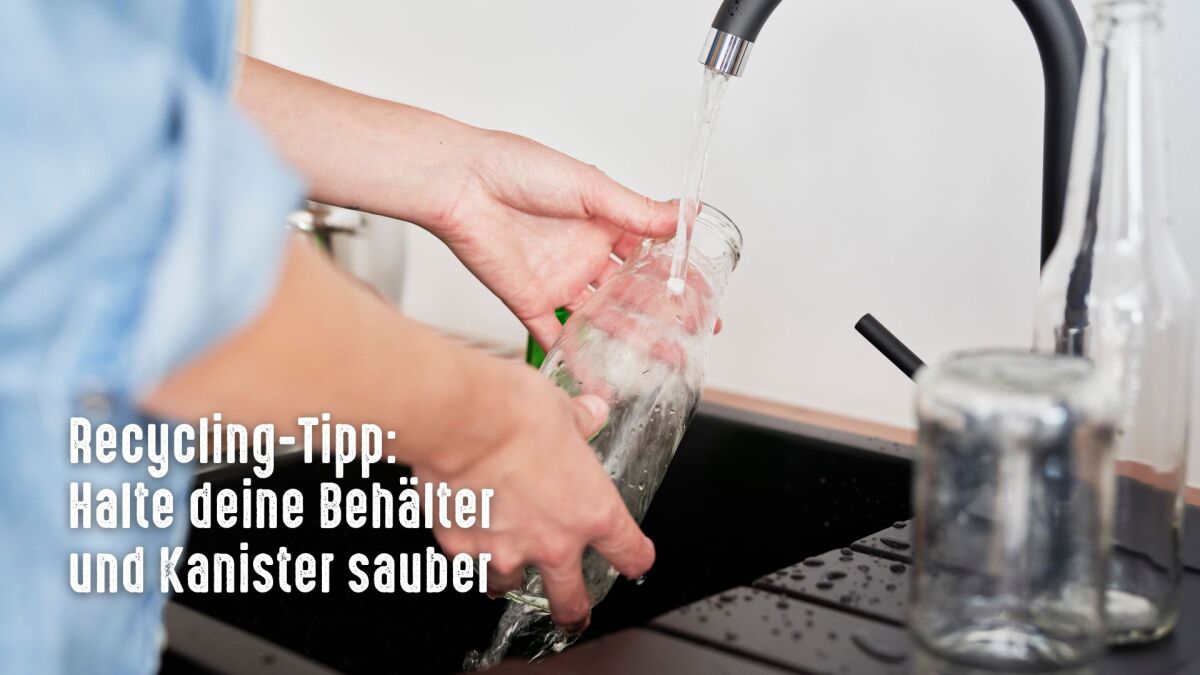
2. Look for the recycling symbol explicitly
These days, it's often made easy for you. Many products that are suitable for recycling bear the appropriate symbol.
You can, of course, also consult your local waste authority to find out which items are particularly suitable for recycling.
3. Keep your containers and canisters dry
Whether you take your raw material to a recycling center or use it yourself, you should make sure that your corresponding containers remain dry.
Completely moist paper or wet cardboard is usually unusable.
4. Sort and separate your trash
You may have heard this demand frequently in Germany - but it is definitely useful, especially about recycling.
If you plan to deliver materials to your local recycling center, you should do well not to hand them over crammed together. In the worst case, your delivery will be rejected.
Furthermore, it is also useful for you to separate the garbage appropriately and to distinguish certain objects and raw materials from each other. This way, you can find what you need faster and bring some order to the recycling process.
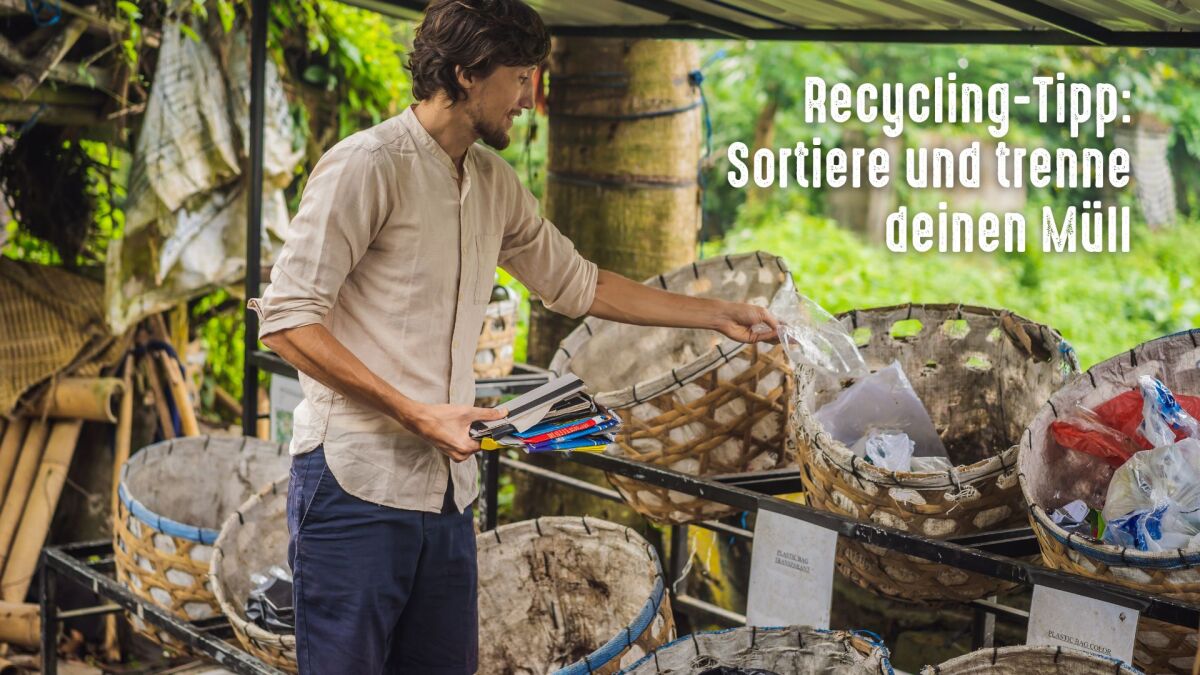
The same applies, for example, to packaging that comes in a combination of cardboard and plastic. Plainly put: If you don't separate this garbage, it's also not recyclable.<
Both for the recycling center and for yourself, it is important to bring as much order and structure as necessary to your waste management. In both cases, you will benefit the most from it.
5. Find out in advance which materials recycling centers can process
Especially in Germany, there are explicit and particularly strict rules regarding waste separation and recycling that must be followed.
This means, however, that recycling centers do not accept everything that you want to sell them as recyclable and bring them accordingly motivated.
To save you time and money, you should find out in advance which packaging, materials, and objects are in high demand and easy to recycle, and which ones you should leave at home and dispose of elsewhere. As with prepping, preparation is half the battle.
6. Motor oil must be recycled
This point is mentioned here to protect you from severe penalties.
If you are a self-made mechanic, tinkerer or gearhead and prefer to do your oil change in your garage instead of in a local workshop, then this guideline plays a particularly important role.
The used oil that accumulates must not be disposed of in the ordinary household waste, but must be given to appropriate places. You can do this at workshops, collection points, or recycling centers.
A useful piece of information that you can remember for difficult times: parts of the used oil can be used to refine new oil. Perhaps you can find out exactly how the recycling process works here and then carry it out at least approximately in case of emergency.
Look, here is old oil being converted into biodiesel. Smart!
7. Don't Forget Composting
By composting correctly, you can create a fertility base for your garden and effectively dispose of emerging organic waste.
Although you can put most of it in residual waste or the organic waste bin, it is not always optimal, especially when SHTF - but more on that in the next section.
Also read
The Complete Guide to Self-Sufficiency in your Garden - Successfully Growing Plants and Vegetables - Whether you are preparing for crises or want to live more sustainably, this guide will help you turn your garden into a self-sufficient environment.
One of the Best Recycling Materials Is Glass
As already mentioned, in the historically focused section of the article, glass can be absolutely excellently recycled.
Many new items can be made from old glass, saving many costs. This makes it all the more important to properly dispose of old glass containers for which you no longer receive a deposit in the designated containers.
Recycling in Exceptional Situations
Now we finally come to the section of the article that you have probably been waiting for continuously.
Finally, the all-important question will be answered for you:
How can you implement recycling into your prepping lifestyle, especially when SHTF?
You will have noticed that there is hardly any relevant information in circulation in society.
The ability to reduce waste and even create valuable new items can save your neck and provide stability in long-lasting emergencies.
That's why I'm providing you some information specifically about recycling in emergencies.
Recycling Paper
A lot of paper waste is generated in German households, which is probably also the case with you, but you can use it for yourself.
If you have some supplies of paper waste in the house when a crisis occurs, it can even help you survive. Here are some things you can conjure up from waste paper:
Paper as fuel
As you probably already guessed, paper is excellent as fuel when you need a quick fire or have little other fuel in the house.
This can also work in damp situations, but be sure to keep both materials as dry as possible.
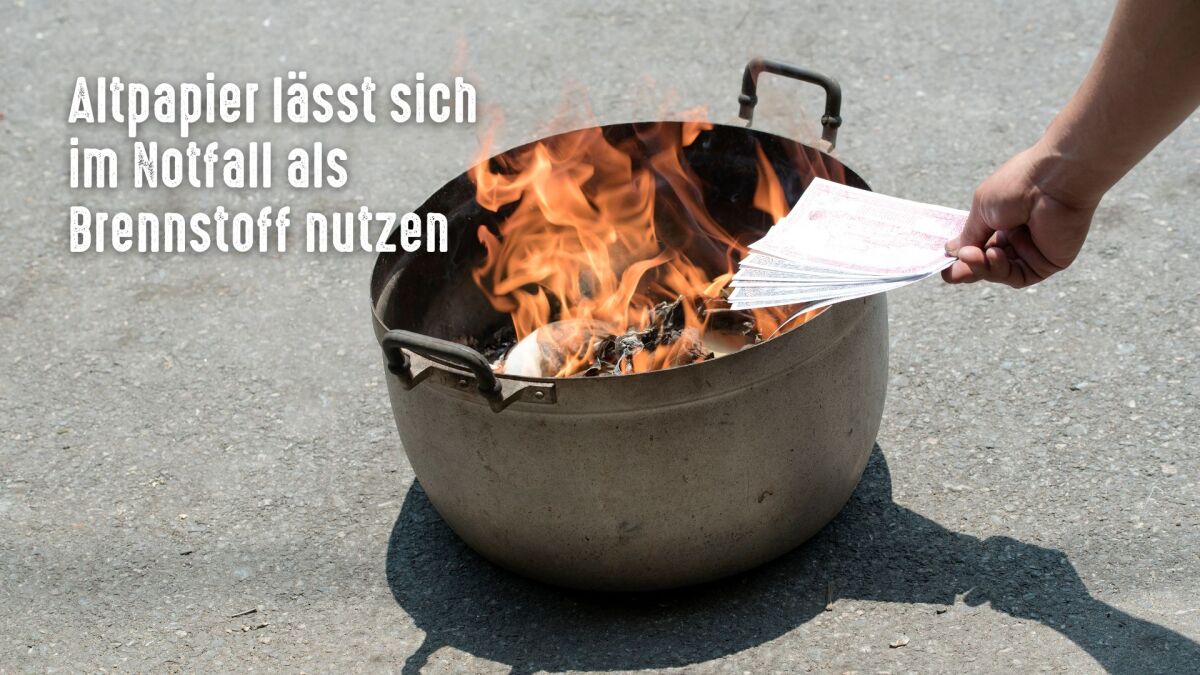
Heat insulation with cardboard boxes
If you have to survive a cold winter within your four walls and currently have no heating available because society is collapsing, old cardboard boxes or styrofoam can be a solution.
If you wrap them, ideally with some aluminum foil, around your windows, the warmth will stay in your apartment longer.
Read my guide "9 ways to stay warm without electricity and heating" to learn how to stay warm without electricity and heating.

Producing papercrete
A great way to use old paper in emergencies is to produce papercrete.
You can use it to create various utensils that may be helpful over time.
One possibility, among others, is to create vessels that you can use in the long term.
Here's what you need to do to succeed:
- Get some cardboard or newspaper, and cut or tear it into small pieces or thin strips.
- Next, let the pieces soak for a while, preferably in a bucket of water.
- Then, take a stirring stick, a mixer or a simple whisk, and mix everything into a uniform substance.
- After 24 hours of soaking, put the mixture into a sieve, so that only a pulp-like substance is left.
Now you can add cement powder and pour everything into the desired shape.
Of course, you have other possibilities to use papercrete. Strengthen your walls, create vessels (here's an instruction for flower pots) or fix damages to your home.
As always, the more creative you are, the more ideas you will come up with for your self-made building material.
Recycling glass
As mentioned in the previous sections, glass is one of the most recyclable materials in the world.
However, you have to be realistic: Unless you have access to the appropriate machinery, you will hardly be able to recycle your old glass to the extent you usually would be in an emergency.
Of course, there are still ways to use your old glass for useful purposes that can also help you in emergencies.
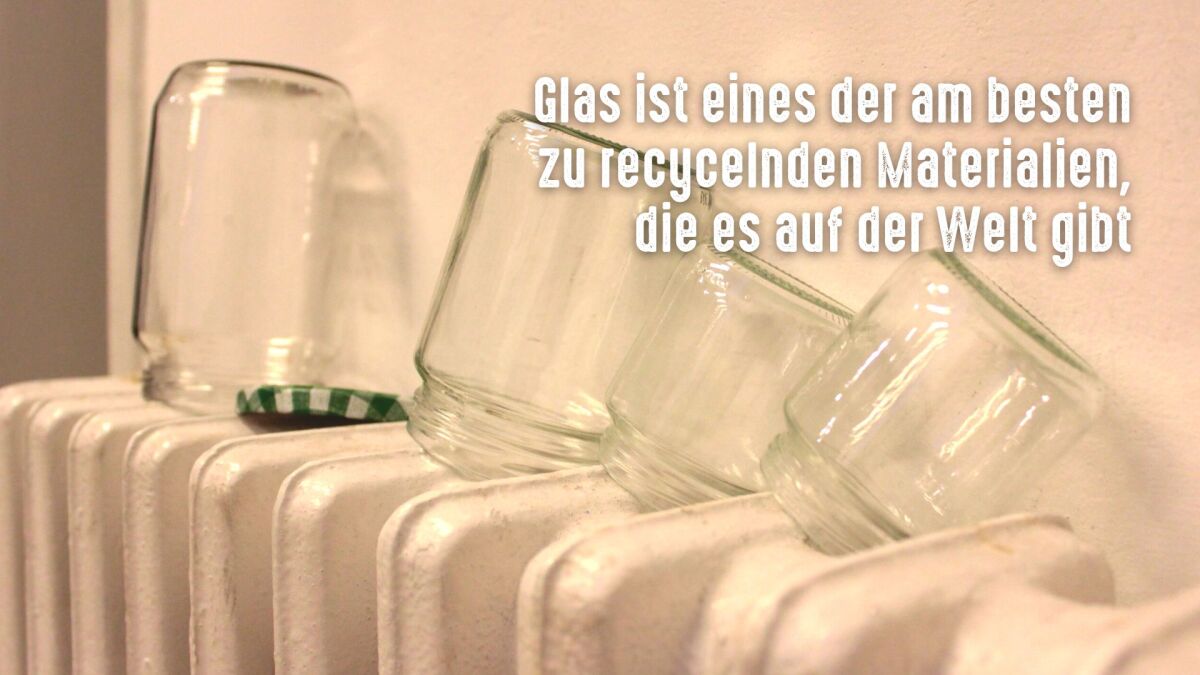
Reusable containers
Probably one of the most obvious uses: Simply wash out an old glass container and use it again.
This way, you will never run out of options for storing food, water, or resources in the long term.
However, be very thorough with the cleaning process if you would rather not have residues of pickles in your homemade jam.
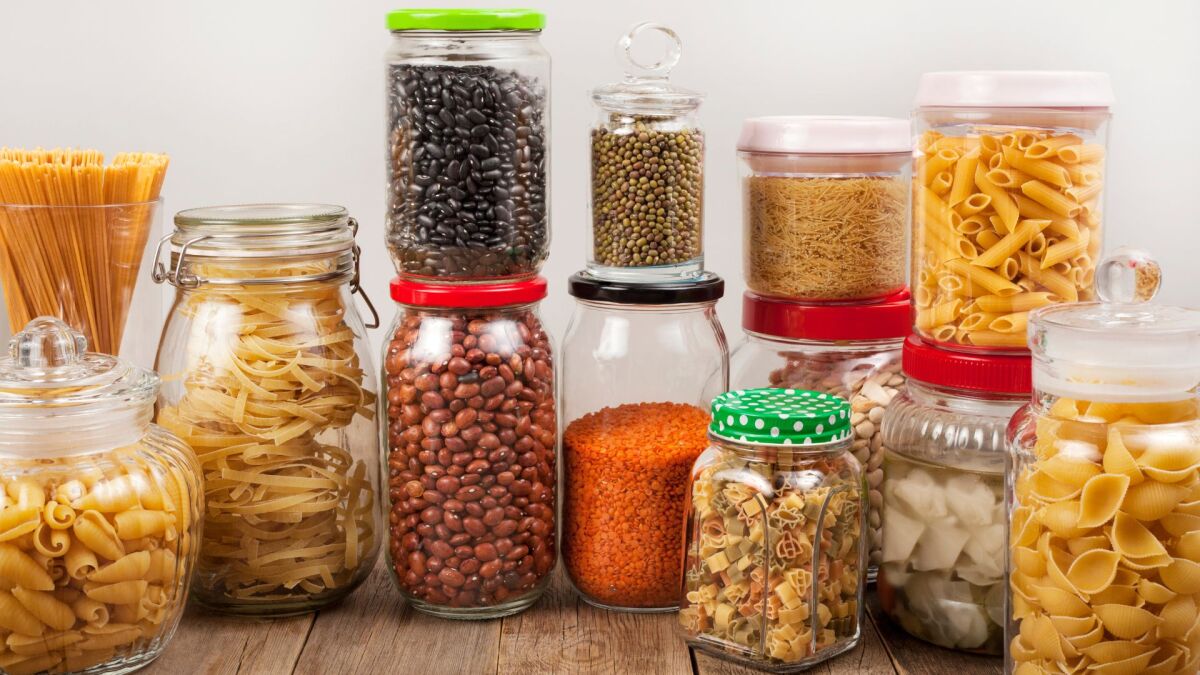
Old glass as a substitute for flower pots
When society collapses, it can be useful to grow your plants, herbs, and even some vegetables.
Here, too, you can use old glass by using it as a useful substitute for flower pots. However, you have to be careful, as not all types of plants and herbs will appreciate your makeshift flower beds.
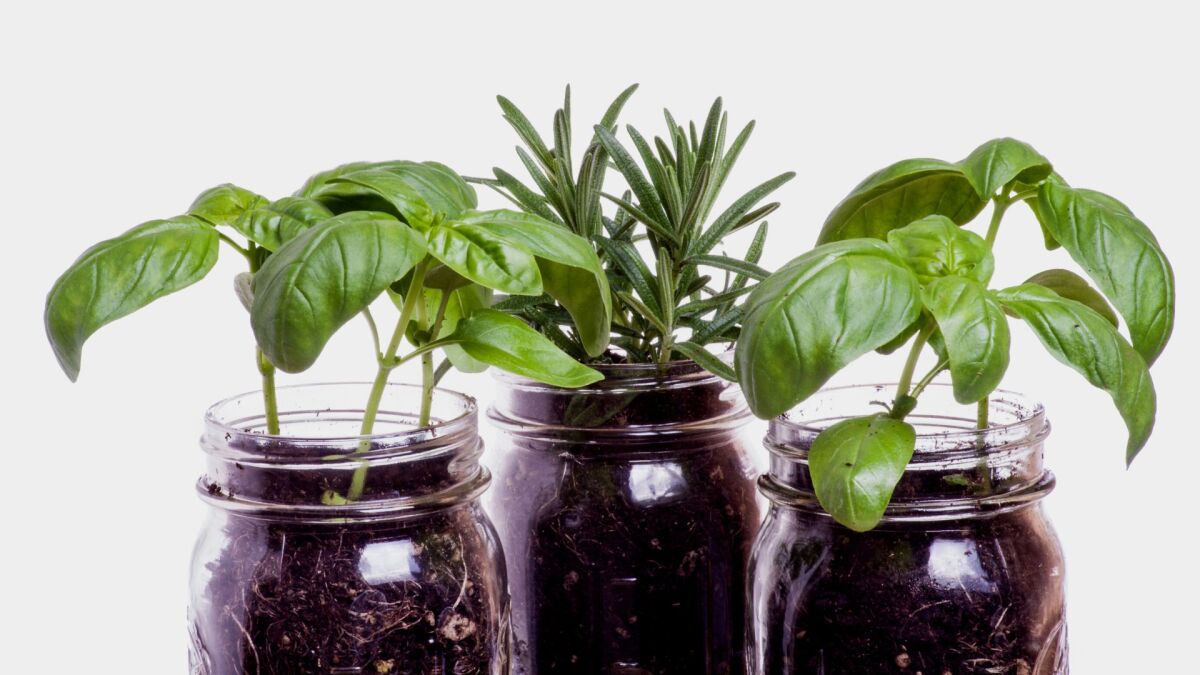
Primarily, this is because in your glass containers, at least ideally, there are no holes as is the case in ordinary flower pots.
Therefore, check which varieties are suitable for breeding in your glass containers. Furthermore, make sure that they are sufficiently filled with stones or soil so that your plants do not drown and perish from overwatering.
Also read
16 fast-growing vegetable plants to grow in a crisis (emergency food from the garden) - When the shelves in the supermarket are empty due to a crisis, it's better to grow your vegetables. Here are 16 great, fast-growing vegetable plants.
Throw the glass in the kiln and melt it!
This method only works if you already own a kiln or something similar. If that's the case - congratulations!
The possibilities that open up to you are diverse. From windows and tiles to new vessels, you can produce almost anything.
Of course, you need relatively large amounts of glass for this. So, think in advance about how much glass you need for your project and how much old glass you want to save.
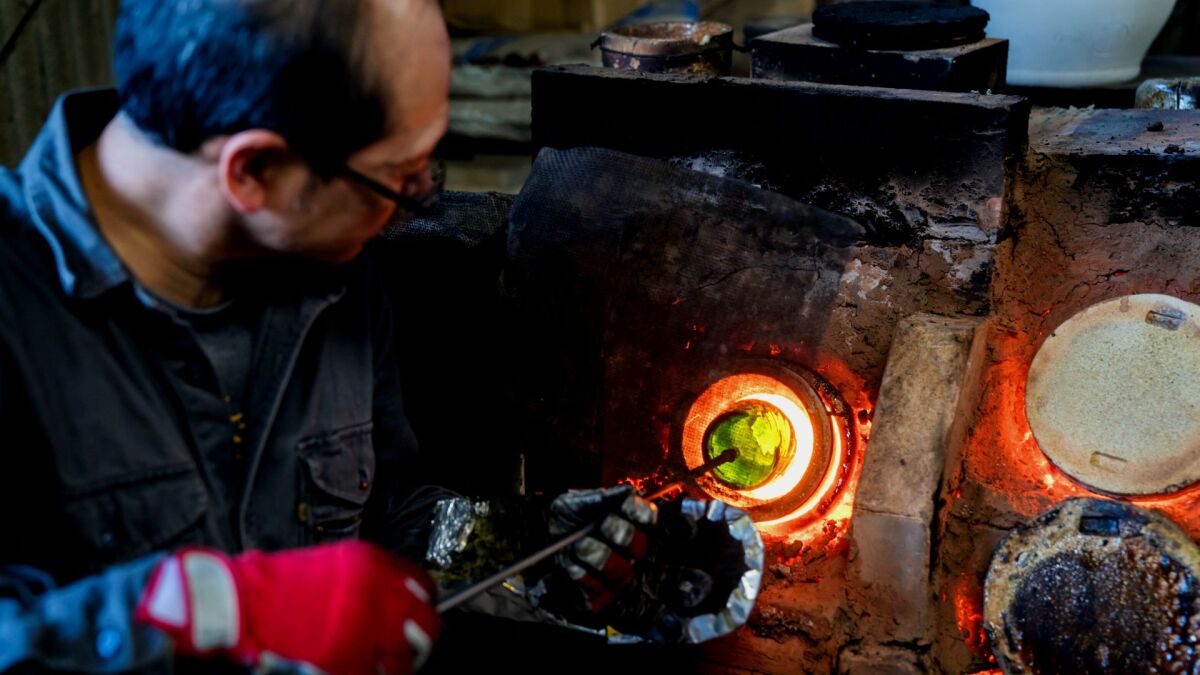
Old glass as an alarm system
You probably know the typical trip wires or noise traps from movies that alert the owner with loud clattering that unwanted visitors have entered the property without authorization.
You can also use glass for such things. It's up to you and your creativity what kind of "alarm system" or trap you create.
Recycling plastic
Even though the trend is currently moving in a different direction, our society is almost overflowing with plastic containers.
Although this is not necessarily good for the environment, you can and should still use it for yourself. Because even old plastic offers you numerous possibilities for reuse.
Plastic containers as flower beds and planters
Similar to glass containers, those made of plastic are also excellent as flower beds, with one decisive advantage: Unlike glass, you can drill one or more holes into this type of container, similar to a real flower pot.
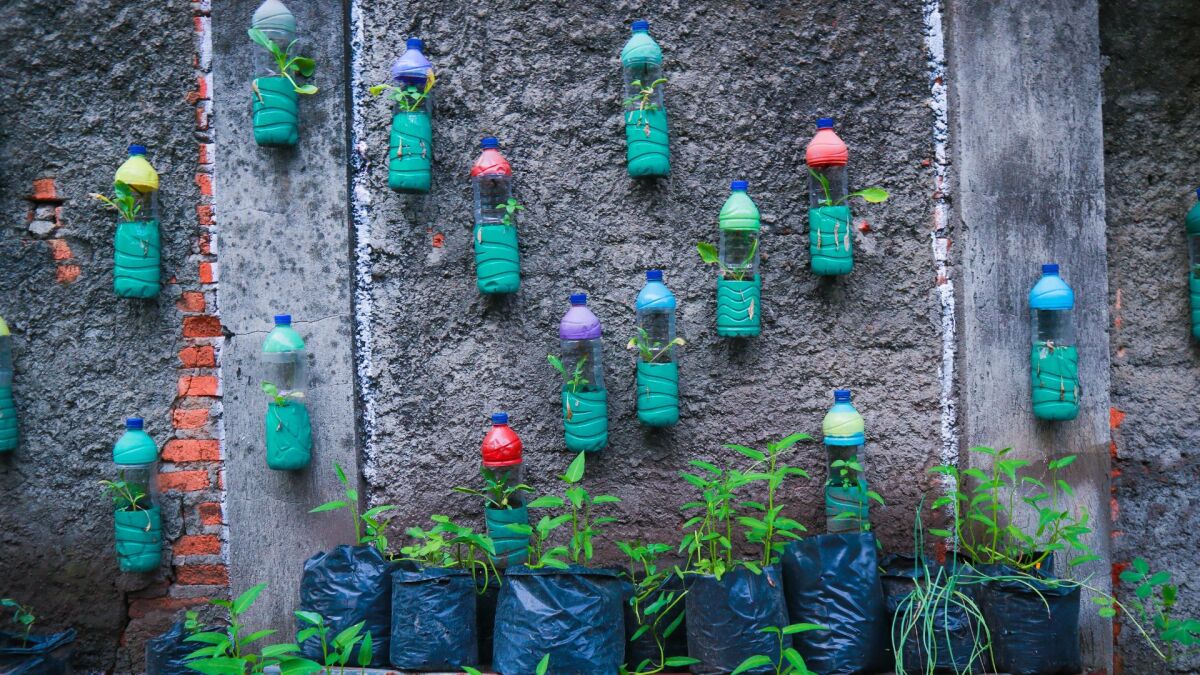
So, you can plant not only herbs there, but also potatoes, tomatoes or other vegetables.
You are surely aware that you must, of course, pay attention to the size of the plastic container. You should not try to grow potatoes or tomatoes in a plastic bottle, but use correspondingly large containers instead.
Especially if you plan to start "large" projects such as salad, potatoes, tomatoes or other plants with a large space requirement, large plastic canisters are fantastic. These offer enough space and volume for even plants with a large space requirement to be grown appropriately.
Build baskets from plastic
Do you perhaps need a new laundry basket or something to transport your freshly planted vegetables?
No problem! Just take an old plastic container, cut it to size if necessary, and use it for all sorts of situations. Only your creativity, as almost everywhere in prepping, sets the limits.
Remember that you may need additional building materials such as string, tape, or other materials for some projects.
So, it's better to plan ahead a little here as well, so you don't get stuck in the middle of your "renovation" due to a lack of resources and realize that you would have preferred to use the old plastic elsewhere.
Creating a makeshift fish trap from old plastic bottles
If you have a few large plastic bottles in your inventory, don't throw them away too quickly!
Are you currently near a body of water where fish can be caught? If so, you'll find a useful use for the old plastic bottles as a makeshift fish trap.
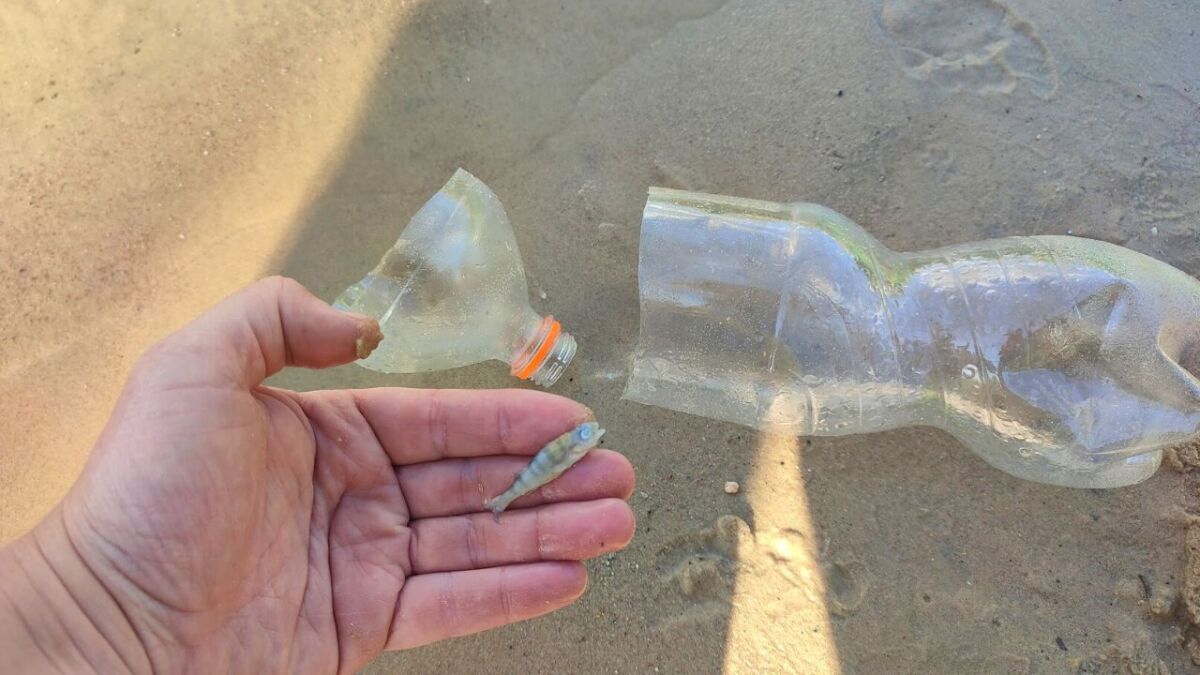
To achieve this, cut off the top of your bottle where its diameter is largest. Cut the neck of the bottle to be just big enough for the fish you want to catch to pass through. If possible, check beforehand which fish are present in the local waters to be successful with your fishing.
Next, punch or drill a few holes into the bottom part of the bottle, specifically in the upper half, from which the water can later drain out once the bottle is brought into an upright position. Drill three holes in the upper rim as well. Two of them are close together, while the other is opposite to these two holes.
Now, slide the top part of the bottle that was just cut off into the bottom part, with the bottleneck facing inward towards the small opening. Additionally, you will also puncture these three holes that are exactly parallel to the ones that you already punctured in the bottom part. As a final step, you'll need some string, wire, or zip tie.
This will connect the two bottle parts so that they have an opening mechanism. The top part should be able to be opened and closed similar to hinges. Attach another string to these "hinges" to quickly pull the bottle out of the water if a fish gets trapped inside.
In the best-case scenario, use a suitable bait to increase your chances of catching fish, but this is not necessarily necessary. If you don't have a suitable bait, you can simply put the fishing trap in the water. Be patient and you will be successful.
Also read:
5 fishing techniques for your survival toolbox - catching fish without modern equipment - These survival fishing techniques will help you catch fish without modern equipment in an emergency situation. So, you can satisfy your hunger and protein needs.
Metal Recycling
Depending on the resources available to you, metal is excellent for recycling, as you can create especially durable and stable things from it.
Melting down Metal
Similar to the process with glass, of course, you can also melt down metal if you have the necessary resources.
Is it possible, are you capable of building an entirely new object from scrap metal? Blades and tools are only a small part of what can be created.
Small ovens from old metal cans
Did you know that you can make small ovens from old beverage cans, which can even be used to cook something small on the go?
If not, then watch this video to understand what I mean:
Build a grill or animal traps from clothes hangers
By removing the wires from old clothes hangers, many new possibilities open up for you.
For example, you can use them as tripwires or snares for hunting. Or you can build a small grill with which you can prepare food over a fire.
Build a hobo stove or wood gasifier
These stoves are wonderful if you want to simmer something, like a cup of water.
You simply take a tin can and build your own small stove from it.
Here you can find a complete guide to a wood gasifier.
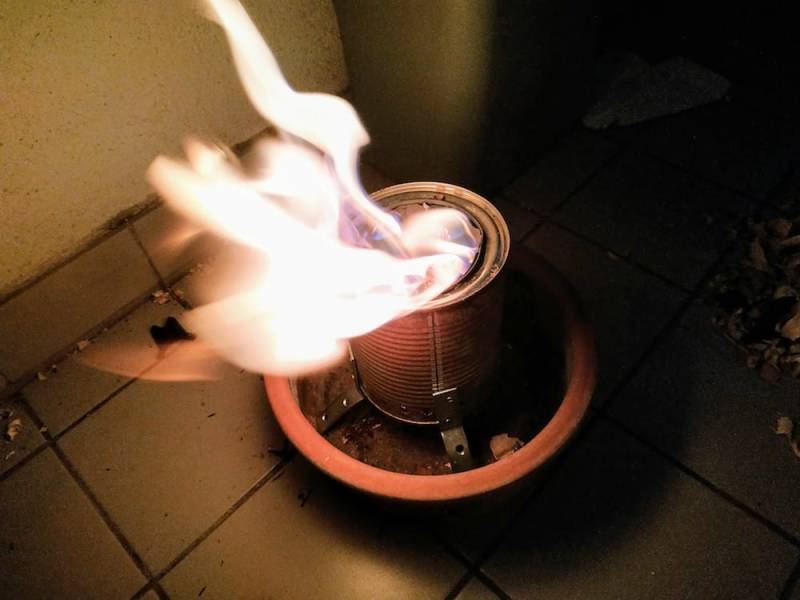
Recycling organic waste
If you want to recycle organic waste, the best way to do it is to use it as fertilizer.
This increases the organic content of your soil, improves its fertility, and ensures that your garden produces fruit.
Conclusion: Recycling significantly improves your chances of survival when SHTF
For some, perhaps including yourself, recycling has until now been something that was only carried out to protect the environment and on a small scale.
However, especially as a prepper, you should see recycling as what it is: a possibility for autarky in certain areas that can make you largely independent of external factors.
When a crisis hits, you primarily want one thing: independence and self-sufficiency.
Recycling can help you achieve this goal.
So start today, as part of your everyday life, to implement recycling into your daily routine.
This way, you get used to it and already begin to discover new opportunities that can be useful to you in the future.
I hope I could give you a few ideas. Write your ideas in the comments as well.


Author of the guide
Martin Gebhardt
Hey, I'm Martin. On my blog, you will learn the basics and numerous details about living in the wild. I think survival, bushcraft and the good life in nature are the keys to happiness. Find me here on Instagram or on YouTube. You can find more about my mission on the About Me page.
Was this guide helpful?
20 people found this guide helpful.
5.00 out of 5 points (20 Ratings)
Comments (0)
This post may contain affiliate links. So if you click on the links and make a purchase, I will receive a small commission at no additional cost to you. Click here, to learn more about it.


